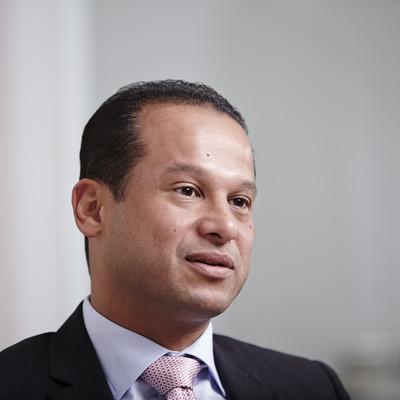Arrested in a New York City hotel on April 11, Georgetown alumnus Mustafa Abdel-Wadood (MBA ’96) faces fraud charges for misappropriating millions of dollars at The Abraaj Group, the largest private equity firm in the Middle East.
Abdel-Wadood, former Abraaj Group managing partner, pled not guilty, Assistant U.S. Attorney Andrea Griswold (COL ’03) said at a federal court hearing April 11. With his trial currently set for Nov. 4 in New York, Abdel-Wadood sought bail Tuesday according to The National. While Abdel-Wadood is awaiting a decision next Monday over whether he will be allowed to leave southern New York jail, U.S. District Judge Lewis Kaplan said Abdel-Wadood is a “palpable” flight risk.
An Egyptian national with dual citizenship in Malta, Abdel-Wadood and two of his former coworkers, Arif Naqvi and Sev Vettivetpillai face charges of fraud in the United States after a health fund within the company overvalued the company’s investments by more than half a billion dollars, according to Abdel-Wadood’s indictment. Before the private equity fund’s collapse, the $1 billion Growth Markets Health Fund invested in healthcare in emerging economies around the world.

After having earned his BBA from American University in Cairo in 1991 and MBA from Georgetown in 1996, Abdel-Wadood was an executive in the field of investment management, corporate finance and business development throughout the Middle East region.
Abdel-Wadood’s attorneys did not respond to a request for comment.
The U.S. case against Abdel-Wadood includes “millions” of documents and computer files, secretly recorded calls and messages and a geolocation tracker placed on his phone, according to Griswold.
Beyond his involvement in Abraaj, Abdel-Wadood is listed as a speaker at a past event with the City Alliance, a London-based organization for Georgetown alumni in financial services, and the 2016 Georgetown University Africa Business Conference.
The Growth Markets Health Fund not only invested in healthcare in growing economies but also raised money for U.S.-based philanthropic organizations and investors including the Bill and Melinda Gates Foundation. The Gates Foundation alone invested $100 million in the fund, while attracting over $900 million of private sector investors, according to a Gates Foundation spokesperson.
The Gates Foundation supported the philanthropic goals of the fund before its end, a Gates Foundation spokesperson said in an interview with The Hoya.
“The fund itself—what it was focused on and what it still is focused on—it was really kind of a new approach for improving healthcare for folks living in Sub-Saharan African and South Asia,” the spokesperson said.
Abdel-Wadood was previously represented by Benjamin Brafman, a well-known criminal defense attorney who represented Sean “P. Diddy” Combs and briefly Harvey Weinstein, but he no longer represents Abdel-Wadood, Brafman wrote in an email to The Hoya.
Abraaj’s founder Naqvi was arrested in London’s Heathrow Airport on April 10, and a court hearing to extradite him to the United States was postponed until April 26, according to The New York Times. Former managing partner Vettivetpillai was also arrested in London and faces an extradition request.
While the McDonough School of Business confirmed Abdel-Wadood was an alumnus, they declined to comment on the ongoing investigation.
Abraaj was founded in 2002 and over the next 16 years became an influential investor in emerging economies. The company held an esteemed position in global development and received the Oslo Business for Peace Award.
Abdel-Wadood joined the firm in June 2006 and departed in March 2018, around the same time that rumors began to swirl about Abraaj’s alleged mismanagement. The firm has since become insolvent and now owes creditors over $1 billion, according to Bloomberg.
Abraaj’s decline is the largest ever private equity insolvency case, according to Arabian Business. Currently, a range of investors are seeking to acquire Abraaj’s various funds in its portfolio, and TPG Capital was in talks to acquire the healthcare fund, according to The Wall Street Journal.





















